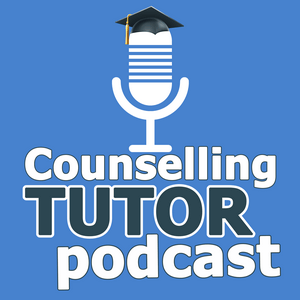In Episode 367 of the Counselling Tutor Podcast, your hosts Rory Lees-Oakes and Ken Kelly explore three timely and important topics for counsellors, psychotherapists, and students.
Firstly, in Ethical, Sustainable Practice, Rory and Ken explore talking to clients about AI in therapy, discussing the growing presence of artificial intelligence (AI) in clients' lives and why therapists need to address the risks, ethics, and boundaries of AI use within the therapeutic contract.
Then, in Practice Matters, Rory is joined by Andrew Kidd for the second part of their conversation on EMDR, focusing on the functional model and how EMDR works in practice to help clients reprocess trauma.
Finally, in Student Services, Rory and Ken unpack a common source of confusion for trainees: when you actually become "qualified" as a counsellor, and how this differs from accreditation and employability.


